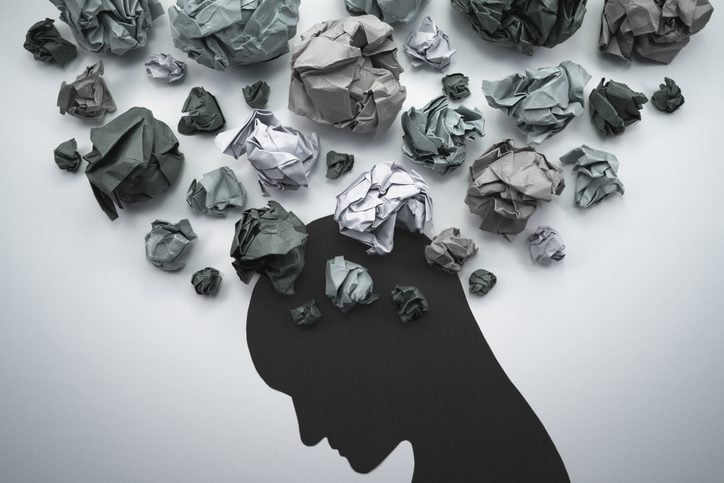
Why Childhood Trauma Doesn’t Always Go Away
No child should experience trauma, but unfortunately, many children do. Children who experience trauma, especially at young ages, may carry this pain or confusion through their lives, and not even have the words to express how or why it is affecting them. Research on childhood trauma is lifting the lid on how a person’s past can affect their future and how a person can heal.
Definitions of Childhood Trauma
According to an article on “The Biological Effects of Childhood Trauma,” trauma in children is a strong psychological, psychosocial, medical, and public policy problem that has significant consequences for the victims. Trauma can mean a lot of different scenarios: children of war, children who have experienced forms of abuse or neglect, and children who have witnessed crimes or experienced homelessness are a few examples of how a child could be exposed to trauma.
A widespread myth about children is that, because they are little, they will not remember traumatic experiences in which they may not have felt safe or been severely hurt. Children do remember the trauma, but they do not have the capacity to verbalize it, often even into adulthood.
For example, a child who was not often fed or nurtured in their infancy and toddler years may experience reactive attachment disorders, issues with food and food security, issues with stealing, shoplifting, or hoarding food, and issues with anxiety/stress stemming around trust. The child will not always know why they feel so strongly about knowing where they get their next meal in their teen years, but as a mode of survival, they will do anything to know they have food available.
Mental Health Effects of Childhood Trauma
Children who experience childhood trauma are at greater risk for mental health disorders. There are many mental health disorders a child who has experienced trauma will develop. A few of these mental health disorders include:
- Post-Traumatic Stress Disorder (PTSD)
- Post-Traumatic Stress Symptoms (PTSS)
- Anxiety
- Depression
- Increased Risk for Alcohol and Substance Abuse
- Antisocial behaviors
- Reactive-Attachment Disorder
- Cognitive deficits and social deficits
Children experience mental health disorders a little differently than adults. Some children are able to cope in public and function with friends but privately struggle with their mental health, causing grades to suffer or leading to substance use. Other children may develop significant behavioral problems and trouble relating to other people. This may be due to grief, a lack of trust, or the inability to verbalize what they are feeling.
Children who lack family structure or who have mental health issues that disable them from experiencing a “normal” childhood may feel increased stress and trauma due to the lack of what they see their peers as having, or the general stress of survival. Many children who experience abuse and trauma will experience cognitive effects, meaning they will experience delays in learning ability, delays in processing information, or delays in social and emotional maturation.
Memory’s Effect on Decisions
As stated before, children’s memories are better than people realize, and they can retain trauma from very young ages. Children of war suffer mental health effects and will react in survival mode for most situations. Children who have experienced neglect will make sure they obtain what they need to survive, and may steal or use unsavory methods to do so.
Recovered and repressed memories are also a significant impact of childhood trauma. Children (and adults as well) have the ability to shut down and store away traumatic memories in order to function normally. Children who repress such memories will do so to survive and escape the trauma they are experiencing. Most often, these memories will resurface in adulthood well into a person’s life (the 40s-60s). When this happens, those adults will re-experience the painful memories and react like a trauma victim. Flashbacks, anxiety, grief, stress, and other PTSD symptoms are common in adults who experience flashbacks.
Abuse, Memory, and Addiction
Teens and adults who experienced child abuse and recovered memories have a long road ahead for mental health and recovery. People who experience this will have significant delays in memory processing, a hindered learning ability, and emotional issues that can manifest as mental health disorders. However, with therapy and healing from childhood trauma, a person can make a full recovery.
Many teens or young adults experiment with substance use and, when they use a substance to suppress memories of abuse or trauma, this experimentation can quickly turn to addiction. Co-occurring disorders like addiction and mental health disorders stemming from abuse are hard to overcome, but not impossible. With the aid of therapy, addiction treatment, and continued aftercare, a person can make a full recovery.
Childhood trauma and traumatic memories are scary and as time goes by they may not go away. The human brain has the incredible ability to block traumatic memories, but they still seem to find ways to creep back up. Those who have developed substance use disorder and mental health disorders due to childhood trauma may experience the urge to drown out flashbacks and horrible memories by using drugs or alcohol. For help addressing addiction and mental health issues, come see us at RECO Intensive. At RECO Intensive, our professional staff and experienced alumni know that co-occurring disorders such as addiction and mental health disorders are hard to overcome without proper support. Our alumni know that with treatment catered to your needs, recovery is not impossible. Call us at RECO Intensive today at (561) 464-6533. We want to help you process your childhood trauma and beat addiction. Let’s get back to a brighter future.